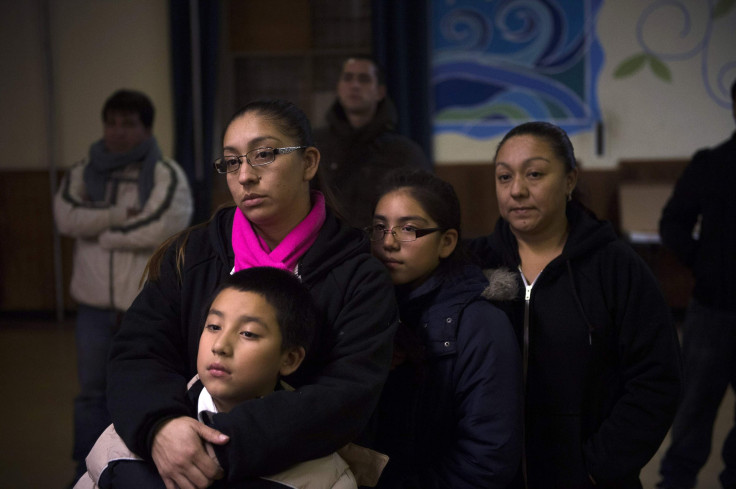Obama Immigration Executive Action Leaves Majority With No New Options

Rosa Reyes Ventura doesn’t speak English that well. She can trade salutations and small talk about the weather, but beyond that she just smiles and shakes her head. But she wants to learn. She wants to learn so that she can stay in the United States and bring her children to live with her. Her three boys still live in El Salvador, a country she left three years ago to escape a man she says abused her and her kids.
President Obama announced a major overhaul of U.S. immigration policy in a prime-time address Thursday night, but Reyes is one of about 7 million undocumented immigrants whose status was unchanged by the president's executive action. Because her children were not born in the U.S. and are not eligible for inclusion under the Deferred Action for Childhood Arrivals (DACA) program, her condition persists.
Obama extended temporary relief from deportation to parents of U.S. citizens and permanent residents who have been in the U.S. for more than five years. The executive action also expanded eligibility for DACA to people under 16 years old, and included relief for parents of permanent residents who have been in the country since the beginning of 2010 as well as spouses and children of permanent residents.
Reyes has lived in the U.S. for three years and wants to stay permanently, but she remains among the millions of American immigrants who face an unclear future and an uncertain present.
“What I want is to bring my kids here,” Reyes said. “When I came to this country…they wanted me to return to my country, but I was afraid to return. And I’m still afraid that they’ll come for me and deport me. I suffered from domestic abuse [in El Salvador], and now the situation is that I have my kids there and they’re alone.”
She is seeking to be granted asylum in the U.S. and was in New York City’s Immigration Court on Friday hoping for a break in her case.
“I don’t know what reason they would have to deport me,” Reyes said. “I don’t have any problems here. I work for my kids, without problems, without crime. All I know is work, nothing else here.”
Nearly 5 million people will be granted reprieve from the specter of deportation under the new immigration framework. They won’t be able to file an application for six months, but those who qualify for deferred action will no longer be targets of deportation by U.S. Immigration and Customs Enforcement (ICE) or Customs and Border Protection (CBP). Both agencies have been instructed to “immediately begin identifying persons in their custody” who meet the criteria as well as to consider the new criteria for “all individuals encountered.”
That still leaves a majority of the estimated 11.5 million undocumented immigrants in the U.S., according to figures from the Department of Homeland Security, with no new options. For Jimmy Johnson, an attorney who recently began focusing on immigration cases, the new measures are a step in the right direction. Still, he says that for most of his clients, “nothing has changed.”
“It’s going to help certain people, but not all people. There are still orders on the pipeline,” Johnson said. “And what I mean by that is there are still people calling me and saying, ‘They’re going to deport me.’”
Johnson says that for many of his clients, the biggest obstacle is that they don’t have kids. For other undocumented immigrants, it has been difficult to understand just what the changes mean and whether they will be included in new deferred action protections.
Attorney Susana Abarca, who has represented about 150 clients with immigration issues over the past year, said her phone started ringing early Thursday afternoon -- hours before the official announcement -- with calls from people wanting to know what the president’s actions meant for them.
“Before [President Obama] even started talking, I got at least five calls,” Abarca said. “I left my office early to hear the speech, so as soon as I get to the office, [I know] I’m gonna get more than that.”
Despite her own uncertainty, Reyes said that she’s happy “for all the other moms” who will get to stay with their American-born children, even if that stay is temporary.
“I’ve been here for three years. I’m planning to be here forever, I want to stay here,” she said. “But for now I have to wait, because it’s the judge’s decision. We’ll see what she says.”
© Copyright IBTimes 2024. All rights reserved.






















